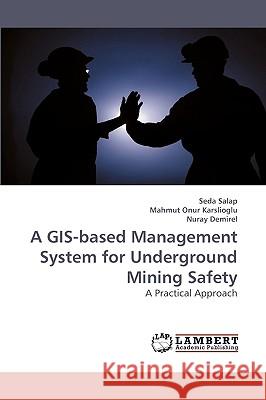A GIS-based Management System for Underground Mining Safety » książka
A GIS-based Management System for Underground Mining Safety
ISBN-13: 9783838315355 / Angielski / Miękka / 2010 / 92 str.
Mine safety is of paramount concern to the mining industry. In this sense the generation of a Geographic Information Systems (GIS) which can administrate relevant spatial data efficiently is a very vital issue for underground mining safety. In an effort to achieve a balance of safety and productivity, GIS can contribute to the creation of a safe working environment in underground (U/G) mining. Such a system should serve to a continuous risk analysis and be designed for applications in case of emergency. The process comprises first the safety concept as the application domain model and then a conceptual model being generated in terms of Entity- Relationship Diagrams. After the implementation of the logical model a user interface is developed and GIS is tested. The analysis should be useful for professionals in Underground Mining Safety field and GIS based applications, or anyone else who may consider utilizing the system for mining industry.
Mine safety is of paramount concern to the mining industry. In this sense the generation of a Geographic Information Systems (GIS) which can administrate relevant spatial data efficiently is a very vital issue for underground mining safety. In an effort to achieve a balance of safety and productivity, GIS can contribute to the creation of a safe working environment in underground (U/G) mining. Such a system should serve to a continuous risk analysis and be designed for applications in case of emergency. The process comprises first the safety concept as the application domain model and then a conceptual model being generated in terms of Entity- Relationship Diagrams. After the implementation of the logical model a user interface is developed and GIS is tested. The analysis should be useful for professionals in Underground Mining Safety field and GIS based applications, or anyone else who may consider utilizing the system for mining industry.











